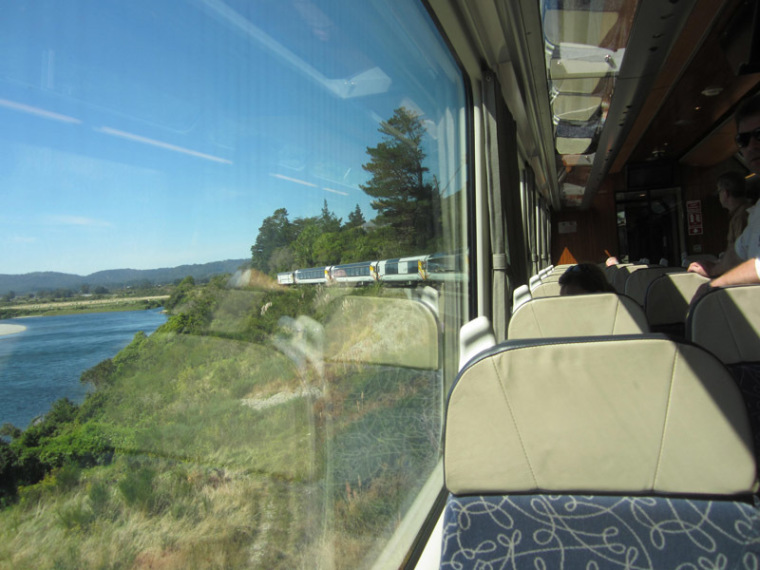
In 1978, American psychiatrist M. Scott Peck wrote the significant book, The Road Less Travelled. It became his best-known work and is still being republished today. The book is, in short, a description of the attributes that make for a fulfilled human being, based largely on his experiences and his interactions with people through his work. Whilst not strictly speaking a Christian book, Peck was a Christian, so his faith was a definite influence. What’s interesting is that Random House, where the then little-known psychiatrist first tried to publish his original manuscript, turned the book down, saying the final section was "too Christ-y!"
The title of the book is quite apt, because what Peck was communicating was that the road to human fulfillment, the journey to finding meaning, is one that is fraught with hard work, vulnerability, and allowing ourselves to be humbled by facing our fears and our failures so that we might experience the healing and freedom that comes with opening our hearts to a spiritual journey.
Navigating the current times that we’re living in here in New Zealand is like being on the road less travelled. The advent of vaccination certificates has divided the nation, particularly in the world that I spend most of my time – the world of the church and among people of faith.
Navigating the road less travelled
While the COVID19 global pandemic continues to be the pandemic that keeps on giving, with variants and waves washing around the globe, I believe we need more than ever to seek God’s truth in how we live our faith within the church.
And the road less travelled is the road that I call Love Street; it’s the difficult road to go down but it’s the one that has the best destination.
The one another’s
There are almost 60 statements we read in the New Testament that lead us towards Love Street. Jesus utters the words ‘love one another’ in John chapter 13, verse 34 and John chapter 15, verse 12. Paul says the same words in Romans chapter 13, verse 8. Peter and John share in this line in their letters.
Throughout the letters written to new Christians in the early church, the message of love is given through the myriad of ‘one another’s’ that litter the New Testament, that blow through the lives and communities of the day as they sought to be the image-bearers of the resurrected Christ.
Be at peace with one another, be devoted to one another, live in harmony with one another, stop passing judgement on one another, serve one another, forgive each other, accept one another, carry each other’s burdens, bear with each other, teach one another, be patient with one another, encourage each other, pray for each other, offer hospitality to one another, don’t grumble against each other, and on and on they go like a scratched record that the needle just can’t get past.
I am increasingly convinced that the one another’s that punctuate all the letters written to Christian communities are in fact what we should call miracles; when this love of one another actually works itself into the lives of those who call themselves followers of Jesus, miraculous things happen – relationships are restored, lives are healed, reconciliation between nations, between people groups, between diverse people living in the same land, is possible.
This is not the easy way
It is obvious that Jesus knew this was not the easy road. Following his now-famous Sermon on the Mount, He writes in Matthew chapter 7, verses 13-14, ‘Enter through the narrow gate. For wide is the gate and broad is the road that leads to destruction, and many enter through it. But small is the gate and narrow the road that leads to life, and only a few find it.’
These are challenging words and Jesus is nothing if He isn’t honest. The smaller gate that leads to the narrow road is the more difficult gate to enter and the more strenuous road to walk, but the rewards and the destination are infinitely superior to what seems to be the easy road.
The point is clear. The small gate and the narrow road produce more fruit in our lives.
The road less travelled – the journey is worth it
During a time when the small gate and the narrow road seem even smaller and narrower, Jesus urges us to walk through it, to enter a journey where love, compassion, empathy and understanding will bear inextricably more goodness than any other way.
Yes, it means we become more vulnerable; yes, it means we will be often humbled; yes, it means that we need to be more Christ-y, but walking the road less travelled will bear the fruit our nations need right now, the fruit of the Spirit.
Let’s get our shoes on and get walking on Love Street!

Grant Harris is a reformed banker who has been the Senior Pastor of Windsor Park Baptist Church in Auckland, New Zealand, for eleven years. Grant’s passionate about seeing people catch a glimpse of who they are in Christ and living out the difference that makes. He’s tried living according to the patterns of this world and found that those patterns came up short. He’s still a work-in-progress and always will be. You can contact Grant at grant.harris@windsorpark.org.nz.